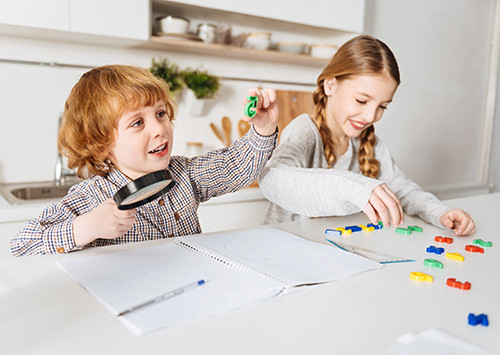
1) Pictograms. In this task, a child will need to use imagination to learn to use associations. You read him a casual set of words (for example, from IQsha's task), and the child draws a figure for each word. His task is to remember all the words, looking only at the drawings. The most important part is to do a recall of the words according to the drawings (without reading the words aloud) the next day, in two days, and in a week. This exercise trains long-term memory.

2) Words aurally. A developed acoustical memory will give serious help to a child in the assimilation of new knowledge, creation of relations, and even in following the requests of adults. It is better to train acoustical memory with games. For example, by composing a story with the words heard from you.

3) Tongue twisters.
Besides good diction, a tongue twister trains the memory as well. The day after acquainting your child with a tongue twister it is important to repeat it word for word, without forgetting anything and without simplifying it. The problem of retelling with filler words "well it … there … as it …" will end when a child understands that it is important to interest a listener in retelling and to make a story short and interesting. Retelling tongue twisters will teach him to use distinct speech and prompt intonations which will intrigue any listener. Learn several interesting tongue twisters together with IQsha.








